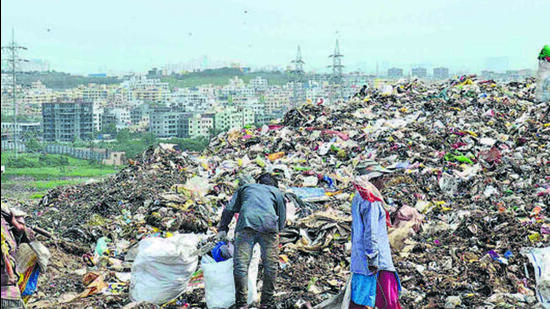Pune, May 22, 2025 — In a major development welcomed by local residents and environmental advocates, the Pimpri-Chinchwad Municipal Corporation (PCMC) has officially scrapped its long-standing plan to set up a garbage depot in Punawale, a rapidly growing residential hub near Pune. The decision, which comes after 17 years of persistent opposition from citizens, marks a significant victory for community-driven urban planning.
Background: A 17-Year Controversy
The proposal to establish a solid waste processing facility in Punawale was introduced by PCMC in 2007, when the area was sparsely populated and primarily agricultural. Over the years, however, Punawale transformed into a thriving residential zone, with thousands of families settling in housing complexes and townships dotting the landscape.
Despite rapid urbanization, the municipal body continued to push for the development of the garbage depot on the originally designated plot. This move was consistently met with fierce resistance from residents, environmental groups, and local representatives, who argued that the depot posed serious health and environmental risks in a now densely populated neighborhood.
Citizens’ Voices Prevail
Public opposition to the depot plan intensified over the past decade, with residents organizing signature campaigns, peaceful protests, and appeals to municipal authorities. One of the primary concerns was the proximity of the proposed site to schools, hospitals, and residential buildings, which activists said violated urban planning norms.
“We are not against waste management, but building a garbage depot in the middle of a residential area is unacceptable,” said Anjali Kulkarni, a resident of Punawale and member of the citizens’ action committee. “Our voices have finally been heard after years of relentless effort.”
Local corporators also raised the issue multiple times in PCMC’s General Body Meetings, advocating for alternative sites away from residential zones.
Official Confirmation and Future Plans
In a formal announcement this week, PCMC Commissioner Shekhar Singh confirmed the decision to withdraw the garbage depot proposal, citing the area’s residential growth, environmental concerns, and civic pressure.
“We respect the sentiments of Punawale residents and acknowledge the legitimate concerns raised. A new, more suitable location for the waste processing facility will be identified in consultation with urban planners and environmental experts,” Singh stated.
The PCMC also assured that the designated plot will now be repurposed for public amenities such as parks, community centers, or educational institutions — a move that has been welcomed by residents.
Urban Planning and Public Participation
Experts see the decision as a significant moment for participatory urban governance in India’s growing cities. “This case highlights how urban planning must evolve in response to demographic changes and public sentiment. Municipal bodies need to ensure that infrastructure development aligns with citizen well-being,” said Dr. Vivek Joshi, a Pune-based urban policy analyst.
Conclusion
The cancellation of the Punawale garbage depot stands as a powerful example of civic activism influencing policy decisions. As PCMC seeks a new site for its waste processing needs, the episode underscores the importance of sustainable, inclusive, and community-conscious urban development.



